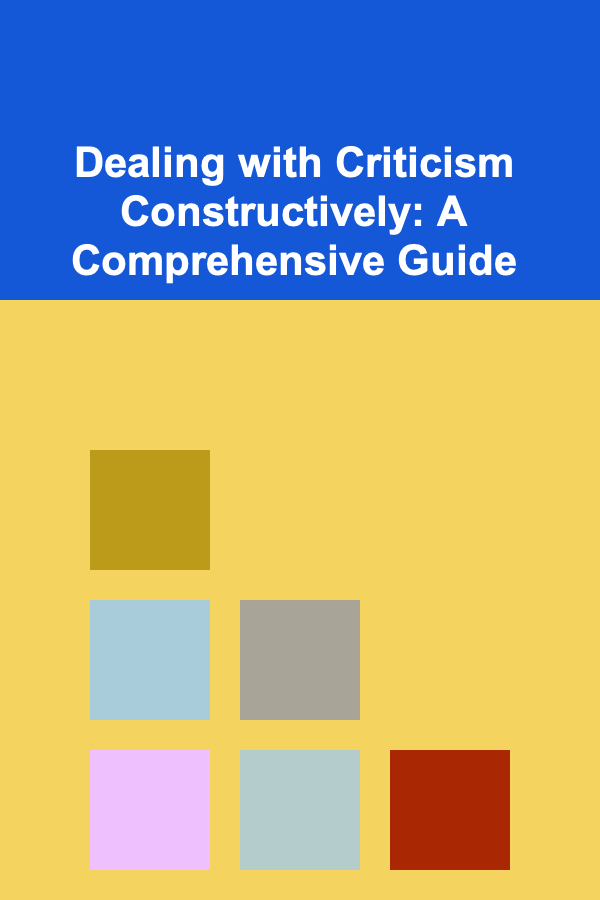
How To Learn to Care for Your Musical Instrument: A Comprehensive Guide
ebook include PDF & Audio bundle (Micro Guide)
$12.99$8.99
Limited Time Offer! Order within the next:

Owning a musical instrument is more than just acquiring an object; it's embarking on a relationship. Like any valuable relationship, it requires nurturing, attention, and, most importantly, care. Proper instrument care not only ensures the longevity and optimal performance of your instrument but also deepens your connection with it. This guide will provide a comprehensive overview of how to learn to care for your musical instrument, covering general principles applicable across various instruments and specific advice tailored to some common types.
Why Instrument Care Matters
The importance of instrument care extends far beyond simply keeping your instrument looking shiny. Here's why it should be a priority:
- Preservation of Value: Musical instruments can be significant investments. Proper care helps maintain their value, whether you plan to resell them later or keep them as cherished possessions.
- Optimal Performance: A well-maintained instrument sounds better and plays more easily. Regular cleaning, lubrication, and adjustments ensure that all components function as they should, resulting in improved tone, intonation, and responsiveness.
- Extended Lifespan: Neglecting instrument care can lead to premature wear and tear, component failure, and even irreversible damage. Regular maintenance can significantly extend the lifespan of your instrument, allowing you to enjoy it for many years to come.
- Prevention of Costly Repairs: Small issues, if left unaddressed, can escalate into major problems that require expensive repairs. Proactive care can help prevent these problems from occurring in the first place.
- Hygiene: Instruments, especially those played with the mouth or hands, can accumulate dirt, sweat, and bacteria. Regular cleaning promotes hygiene and reduces the risk of infections or skin irritations.
- Increased Enjoyment: When your instrument is in good condition, you'll find it more enjoyable to play. Knowing that you're taking good care of your instrument can also boost your confidence and motivation.
General Principles of Instrument Care
Regardless of the specific instrument you play, certain general principles of care apply:
1. Understanding Your Instrument
The first step in caring for your instrument is understanding its construction, materials, and potential vulnerabilities. Read the manufacturer's manual, research online, or consult with experienced players or technicians. Learn about the specific parts of your instrument and how they interact with each other. This knowledge will help you identify potential problems and perform basic maintenance tasks correctly.
2. Regular Cleaning
Regular cleaning is essential for removing dirt, dust, fingerprints, and other debris that can accumulate on your instrument. Use appropriate cleaning products and materials, such as microfiber cloths, instrument polish, and specialized brushes. Avoid using harsh chemicals or abrasive cleaners, as these can damage the finish or materials of your instrument.
3. Proper Storage
When you're not playing your instrument, store it in a safe and appropriate location. A hard case is generally the best option for protecting your instrument from physical damage and environmental factors. Avoid storing your instrument in extreme temperatures or humidity levels, as these can cause warping, cracking, or other problems. Keep your instrument away from direct sunlight, heat sources, and drafts.
4. Humidity Control
Humidity can have a significant impact on wooden instruments, such as guitars, violins, and cellos. Low humidity can cause the wood to dry out and crack, while high humidity can cause it to swell and warp. Use a humidifier or dehumidifier to maintain a stable humidity level in the room where you store your instrument. Consider using a case humidifier or hygrometer for more precise humidity control.
5. Regular Maintenance
Regular maintenance tasks, such as lubricating moving parts, tightening screws, and adjusting string tension, can help keep your instrument in optimal playing condition. Consult your instrument's manual or a qualified technician for specific maintenance recommendations. Don't attempt to perform repairs that you're not comfortable with, as this could potentially damage your instrument.
6. Professional Servicing
Even with regular care and maintenance, your instrument may eventually require professional servicing. Schedule regular checkups with a qualified technician to address any potential problems and ensure that your instrument is in top playing condition. Professional servicing can include tasks such as cleaning, adjusting, repairing cracks, replacing worn parts, and re-stringing.
7. Handling with Care
Always handle your instrument with care to avoid accidental damage. Be mindful of where you place your instrument, and avoid bumping it or dropping it. When transporting your instrument, use a sturdy case and handle it gently. Avoid leaving your instrument unattended in public places, as it could be stolen or damaged.
8. Develop a Routine
Make instrument care a part of your regular routine. Set aside a few minutes each day or week to clean and inspect your instrument. This will help you catch potential problems early and prevent them from escalating.
9. Document Your Care
Keep a record of your instrument care activities, including cleaning dates, maintenance tasks, and professional servicing appointments. This will help you track the condition of your instrument and ensure that it receives the necessary care.
10. Learn from Others
Talk to other musicians, instrument technicians, and repair professionals to learn more about instrument care. Share your experiences and ask questions. The more you learn, the better equipped you'll be to care for your instrument.
Specific Instrument Care Tips
While the general principles above apply to most instruments, specific instruments require tailored care. Here are some tips for common instruments:
Guitars (Acoustic & Electric)
Guitars, both acoustic and electric, are susceptible to changes in humidity and temperature. The wood can warp, crack, or swell, affecting the playability and sound of the instrument.
- Humidity Control: Maintain a humidity level of 45-55% in the room where you store your guitar. Use a humidifier or dehumidifier as needed. Consider using a case humidifier for acoustic guitars, especially during dry seasons.
- Cleaning: Wipe down the body and neck of your guitar after each playing session with a microfiber cloth. Use a guitar polish to remove fingerprints and smudges. Clean the fretboard with a fretboard cleaner and conditioner periodically.
- Strings: Replace your strings regularly, depending on how often you play. Dirty or corroded strings can affect the tone and intonation of your guitar. Use a string cleaner to prolong the life of your strings.
- Neck Adjustment: Check the neck relief of your guitar periodically. If the neck is too straight or too bowed, it can affect the playability of your instrument. Adjust the truss rod as needed, or consult a qualified technician.
- Hardware: Keep the tuning pegs, bridge, and other hardware clean and lubricated. Use a lubricant specifically designed for musical instruments.
- Electronics (Electric Guitars): Clean the potentiometers and switches periodically to prevent crackling or static. Use a contact cleaner specifically designed for electronics. Store electric guitars in a case to protect them from dust and moisture.
Violins, Violas, Cellos, and Basses (Stringed Instruments)
These instruments, known collectively as the violin family, are particularly sensitive to environmental changes and require specialized care.
- Humidity Control: This is paramount. Avoid drastic temperature or humidity changes. Use a hygrometer to monitor the humidity level inside the case and use a case humidifier during dry seasons. Aim for a humidity level of 40-60%.
- Cleaning: Wipe down the instrument after each use with a soft, lint-free cloth to remove rosin dust from the body, neck, and strings. Avoid touching the body of the instrument with your bare hands, as the oils from your skin can damage the varnish.
- Rosin: Apply rosin to the bow hair sparingly and evenly. Too much rosin can dampen the sound of the instrument. Clean the rosin dust from the instrument regularly.
- Strings: Replace strings as needed, generally every 6-12 months depending on usage. Wipe strings down regularly with a soft cloth.
- Bow Care: Loosen the bow hair after each use. Store the bow in a safe place to prevent it from being damaged. Have the bow re-haired by a qualified bow maker when necessary.
- Bridge: Ensure the bridge stands straight. A leaning bridge will eventually damage the instrument. If the bridge leans, consult a luthier immediately.
- Soundpost: The soundpost inside the instrument is crucial to tone production. It should be checked by a luthier annually.
Woodwind Instruments (Clarinet, Flute, Saxophone, Oboe, Bassoon)
Woodwind instruments are susceptible to moisture buildup, which can lead to corrosion and damage to the pads and other components.
- Swabbing: Swab the bore of the instrument after each playing session to remove moisture. Use a swab specifically designed for your instrument. For instruments like clarinets and saxophones, swab the mouthpiece as well.
- Pad Savers: Consider using pad savers to absorb moisture from the pads. Be sure to remove the pad savers regularly to allow the pads to air dry.
- Cleaning: Clean the mouthpiece regularly with a mouthpiece brush and warm, soapy water. Disinfect the mouthpiece periodically with a mouthpiece sanitizer.
- Key Oil: Oil the keys periodically to keep them moving smoothly. Use a key oil specifically designed for woodwind instruments.
- Cork Grease: Apply cork grease to the corks on your instrument to keep them lubricated and prevent them from drying out and cracking.
- Professional Servicing: Have your instrument professionally serviced regularly, typically every 1-2 years, to have the pads replaced, the keys adjusted, and the instrument cleaned and lubricated.
Brass Instruments (Trumpet, Trombone, French Horn, Tuba)
Brass instruments are prone to corrosion and mineral buildup, which can affect the valves, slides, and overall sound of the instrument.
- Valve Oil: Oil the valves regularly to keep them moving smoothly. Use a valve oil specifically designed for your instrument.
- Slide Grease: Apply slide grease to the trombone slide to keep it moving smoothly. Use a slide grease specifically designed for trombones.
- Cleaning: Wash the instrument periodically with warm, soapy water to remove dirt, oil, and mineral buildup. Use a snake brush to clean the tubing. Rinse the instrument thoroughly and dry it completely before storing it.
- Water Key: Empty the water key (also known as the spit valve) frequently to prevent moisture buildup.
- Mouthpiece: Clean the mouthpiece regularly with a mouthpiece brush and warm, soapy water. Disinfect the mouthpiece periodically with a mouthpiece sanitizer.
- Professional Servicing: Have your instrument professionally serviced regularly, typically every 1-2 years, to have the valves and slides cleaned, the instrument inspected for leaks, and any necessary repairs made.
Percussion Instruments (Drums, Cymbals, Xylophone, Marimba)
Percussion instruments require different types of care depending on the specific instrument and materials involved.
- Drums: Wipe down drum shells with a damp cloth to remove dust and fingerprints. Clean drumheads regularly with a drumhead cleaner. Keep hardware clean and lubricated. Check and tighten drum lugs periodically to maintain proper tension.
- Cymbals: Clean cymbals regularly with a cymbal cleaner to remove fingerprints, oxidation, and other buildup. Avoid using harsh chemicals or abrasive cleaners, as these can damage the finish of the cymbals.
- Mallet Instruments (Xylophone, Marimba): Dust the bars regularly with a soft cloth. Store mallets in a safe place to prevent them from being damaged. Replace worn mallets as needed.
- Timpani: Clean the timpani heads regularly with a timpani head cleaner. Check and adjust the tuning of the timpani heads as needed.
Finding Reliable Resources and Help
Caring for your instrument can sometimes require more than just basic maintenance. Knowing where to find reliable resources and help is crucial.
- Instrument Technicians/Luthiers: Find a reputable technician specializing in your instrument type. Their expertise is invaluable for repairs, adjustments, and general maintenance.
- Local Music Stores: Music stores often offer repair services or can recommend qualified technicians. They are also great resources for instrument care products.
- Online Forums and Communities: Connect with other musicians online. Forums dedicated to specific instruments can provide valuable advice and troubleshooting tips. However, always verify information before acting upon it.
- Manufacturer Websites and Manuals: Consult the manufacturer's website or your instrument's manual for specific care instructions and recommendations.
- YouTube Tutorials: Many musicians and technicians share helpful tutorials on instrument care and maintenance on YouTube.
Developing a Long-Term Care Strategy
Effective instrument care is a marathon, not a sprint. Building a long-term care strategy will safeguard your instrument and maximize its lifespan.
- Create a Schedule: Establish a regular cleaning and maintenance schedule. Even short, consistent sessions are more effective than infrequent deep cleans.
- Budget for Maintenance: Factor in the cost of regular maintenance and potential repairs when planning your musical expenses.
- Observe and Listen: Pay close attention to your instrument's sound and playability. Notice any changes or irregularities, and address them promptly.
- Be Proactive: Don't wait for a problem to arise before taking action. Regular maintenance can prevent many issues from developing in the first place.
- Enjoy the Process: Caring for your instrument shouldn't feel like a chore. Embrace it as an opportunity to connect with your instrument and deepen your musical experience.
Learning to care for your musical instrument is an ongoing process. By understanding the general principles of instrument care, seeking expert advice when needed, and developing a long-term care strategy, you can ensure that your instrument remains in optimal condition for many years to come. Remember, a well-cared-for instrument is not only a joy to play but also a valuable investment that will bring you years of musical enjoyment.

How to Create a Neighborhood Watch Program
Read More
How to Organize Your Digital Photos for Easy Sharing
Read More
How to Use Neighborhood Apps to Enhance Community Security
Read More
Understanding the Importance of Electrolytes: A Deep Dive
Read More
Dealing with Criticism Constructively: A Comprehensive Guide
Read More
How to Brew Session Beers for Hot Weather
Read MoreOther Products

How to Create a Neighborhood Watch Program
Read More
How to Organize Your Digital Photos for Easy Sharing
Read More
How to Use Neighborhood Apps to Enhance Community Security
Read More
Understanding the Importance of Electrolytes: A Deep Dive
Read More
Dealing with Criticism Constructively: A Comprehensive Guide
Read More